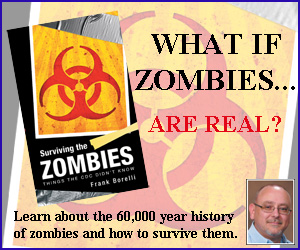Have you ever wondered why or how someone particular got to be King or Queen? Sure, if you watch movies and assume any level of accuracy in them, some of the kings our world has seen become so through nothing more than force of violence. They were the strongest or they had the strongest army. That “strongest army” might also have simply meant most brutal or best armed. But when our world reached a point where Kings weren’t just the result of brute force, how was a king selected? As recently as the late 1700s, a new nation tried to select a man to be king. George Washington turned down the title and refused being “royalty,” but why was he chosen to potentially be such in the first place?
 It’s generally accepted, and also pushed by Hollywood, that people who deserve royalty are those who combine great leadership prowess with such characteristics as courage, honesty and humility. “Noble” is often a term used to describe those worthy of royalty. Noble can be a state of being (nobleman) or describe a behavior (it was a noble action). True to form, when trying to describe or define a particular term, dictionary.com gets referenced.
It’s generally accepted, and also pushed by Hollywood, that people who deserve royalty are those who combine great leadership prowess with such characteristics as courage, honesty and humility. “Noble” is often a term used to describe those worthy of royalty. Noble can be a state of being (nobleman) or describe a behavior (it was a noble action). True to form, when trying to describe or define a particular term, dictionary.com gets referenced.
Noble:
- distinguished by rank or title.
- pertaining to persons so distinguished.
- of, belonging to, or constituting a hereditary class that has special social or political status in a country or state;
- of or pertaining to the aristocracy.
- of an exalted moral or mental character or excellence.
Nobility:
- the nobleclass or the body of nobles in a country.
- (in Britain) the peerage.
- the state or quality of being noble.
- nobleness of mind, character, or spirit; exalted moral excellence.
- grandeur or magnificence.
- noblebirth or rank.
 After seeking those definitions, a few more seemed in order.
After seeking those definitions, a few more seemed in order.
Royalty:
- royalpersons collectively.
- royalstatus, dignity, or power; sovereignty.
- a person of royallineage; member of a royal family.
- royalties,Archaic. prerogatives, rights, or symbolic emblems of a king, queen, or other sovereign.
- a royaldomain; kingdom; realm.
- character or quality proper to or befitting a sovereign; nobility.
Majestic (because why do we call royalty “your majesty”?):
- characterized by or possessing majesty; of lofty dignity or imposing aspect; stately; grand.
Majesty:
- regal, lofty, or stately dignity; imposing character; grandeur.
- supreme greatness or authority; sovereignty.
- (usually initial capital letter) a title used when speaking of or to a sovereign (usually preceded by his, her,or your
- a royal personage, or royal personages collectively.
 In several of those definitions, and they’ve been indicated in bold italicized type, you’ll find a common reference to moral excellence or a specification of the type of character a person holds. As a final bit of research, the strength of social media was leveraged to find out what others would offer up as their opinion on “What makes a person ‘noble’?” The answers included such personality characteristics or moral values as:
In several of those definitions, and they’ve been indicated in bold italicized type, you’ll find a common reference to moral excellence or a specification of the type of character a person holds. As a final bit of research, the strength of social media was leveraged to find out what others would offer up as their opinion on “What makes a person ‘noble’?” The answers included such personality characteristics or moral values as:
- Selfless service / Self-sacrificing
- Courage / Fortitude
- Committed
- Trustworthy / Decent
- Loyalty / Duty / Respect / Honor
- Uncorrupted / incorruptable / Integrity / Ethical / Virtuous
- Temperance / Prudence / Just
They’ve been lumped together in groups that seem related or synonymous in meaning. The characteristics provided paint a picture of a person who would obviously be deemed of great respect.
People who demonstrate these noble characteristics are worthy of being referred to as “nobility.” When you think about it, what most people envision when they think of medieval knights are men who displayed just these characteristics. In every book you’ve ever read and every movie you’ve ever seen, if there was a “bad” knight it was because he didn’t embrace one of these characteristics – most often that of either selfless service or being uncorrupted. The bad knights most often are seeking to increase their own levels of power or wealth.
All of that same outlook applies to our paladin of today – those men and women who serve in law enforcement uniforms, military uniforms, firefighter… well, you get the point. Those who serve, making sacrifices and accepting risk without motivation from lust for power or money, they are the nobility of today. For all of that, every one of us is human and we all falter at times. The most noble among us are those who falter the least. It’s that simple.
So, the question becomes, is nobility desired even if you’re not serving in a uniform? The answer is absolutely yes. Whether physical risk exists or not, all of the other characteristics we consider noble are desirable in everyone. Knowing that, and being familiar with what the characteristics of nobility are, then the final question becomes – are you being as noble as possible each day?

